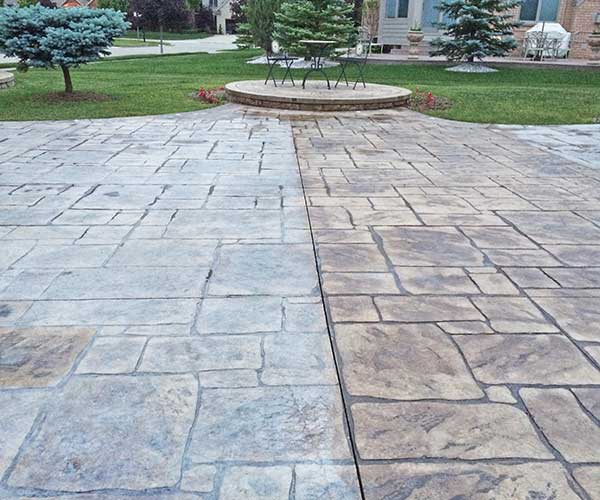Sweep or blow off the dirt and grime wait until there is not any direct sunlight.
Stamped concrete sealer bubbles.
Don t over apply sealer which may trap solvents and form bubbles.
As a last resort the surface can be stripped of all sealer cleaned and resealed.
Let the sealer sit overnight and dry properly.
If necessary apply two thin coats instead of one thick coat.
The pressure causes the sealer to bubble as you see on the left or in extreme cases as on the right it blasts the sealer off the surface off the concrete.
Whose fault was it.
You can learn more about sealing and repair of blisters and bubbles by calling the technical department of most any major sealer manufacturer.
However if bubbles continue to form then try sealing during a cooler time of year.
Most decorative concrete sealers are quite sensitive to moisture.
Use chemmasters specially formulated bubble resistant products like polyseal ez and stamped decorative concrete.
Usually late in the day is best.
No need to waste all that sealer or create more problems if it doesn t work.
A xylene bath lightly soaking the problem area with a xylene solvent and back rolling is the first step.
Sometimes reapplying the same sealer will fix the concrete blisters and bubbles again try this on a small area first.
How to fix bubbles in sealer if the temperature isn t too hot then apply a new coat of sealer to re liquify the existing sealer.
After the concrete hardens this water escapes the concrete as a gas water vapor.
Use light colors for the slab.
Adhere to the manufacturer s.
This typically happens to stamped concrete or smooth decorative concrete surfaces.
For any exterior stamped concrete that will be sealed and especially pool decks i have a few hard fast recommendations.
Concrete sealer bubbles solvent based acrylic concrete sealers are designed to enhance darken and give a sheen to decorative concrete surfaces.
If this does not work you will probably need to strip off some or all of the sealer.
Concrete sealer blisters and bubbles as well as concrete sealer whitening are caused by moisture.
Applying a solvent to reset the sealer and melt the bubbles.
If bubbles run deep then the sealer is usually on too thick and a solvent bath along with back rolling may be needed.
When concrete is freshly poured it has a high water content mixing water.

